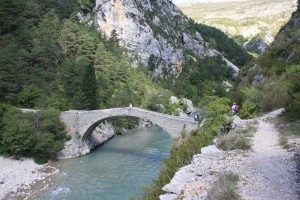14 April 2016
Making a Tidy Exit
by J.R.Thomas
 There is a long tradition in these islands of wandering practitioners of various arts. Not just wandering minstrels, but wandering knife grinders, itinerant cobblers, strolling luthiers, jobbing gardeners. In the twenty first century world of regulation and reporting, to say nothing of PAYE, National Health numbers, and compulsory voter registration, the wandering professional plying his valuable trade has largely disappeared. But, not quite completely. We still have, for instance, a wandering philosopher. Professor Roger Scruton is he, often said to be the philosopher of conservatism, and indeed of Conservatism. Not quite truly wandering, as he lives on a small farm in Wiltshire, but unlike most modern philosophers, Prof Scruton no longer attaches his name to any University or educational establishment, but plys his wondrous trade as opportunities arise and the fancy takes him. Which now, is mainly through publishing his thoughts and contemplations. His latest book, a set of essays, is just out (“Confessions of A Heretic”; 2016, Notting Hill Press) and it is already causing the chorus of dissent and outrage that one suspects the Professor likes to aim for in his work.
There is a long tradition in these islands of wandering practitioners of various arts. Not just wandering minstrels, but wandering knife grinders, itinerant cobblers, strolling luthiers, jobbing gardeners. In the twenty first century world of regulation and reporting, to say nothing of PAYE, National Health numbers, and compulsory voter registration, the wandering professional plying his valuable trade has largely disappeared. But, not quite completely. We still have, for instance, a wandering philosopher. Professor Roger Scruton is he, often said to be the philosopher of conservatism, and indeed of Conservatism. Not quite truly wandering, as he lives on a small farm in Wiltshire, but unlike most modern philosophers, Prof Scruton no longer attaches his name to any University or educational establishment, but plys his wondrous trade as opportunities arise and the fancy takes him. Which now, is mainly through publishing his thoughts and contemplations. His latest book, a set of essays, is just out (“Confessions of A Heretic”; 2016, Notting Hill Press) and it is already causing the chorus of dissent and outrage that one suspects the Professor likes to aim for in his work.
This, though, is not a review of his book, or an attack on or defence of a man who can redoubtably repel the first and magnificently resource the other. It is to draw attention to one particular essay in the book which deserves much more public attention as a contribution to a debate that surely will grow more and more prominent in our public life. Or maybe, one should say, in our public death.
“Dying in Time” is the title of the essay and it muses on death, and our increasing ability, especially in the West, if not to avoid it, to certainly put it off for a remarkably long time. With some irony, shortly after the publication of his new book containing this essay, Scruton fell off his horse (always, one supposes, a risk for an itinerant philosopher) and broke his leg. Whether this has changed Scruton’s view of how to deal with death remains to be seen; but it certainly accords entirely with the approach to a graceful and timely exit from this earthly coil that he broods upon in his essay.
What concerns Scruton is the rapid advance of medical science in enabling us to live longer and longer. Throughout the twentieth century, and abstracting the awful effects of two world wars, expected and actual life spans in the west have grown ever longer; with a particularly sharp upturn in the curve over the last twenty years. This is attributed largely to advances in medical science. Some diseases have been conquered, others can be cured, or at least the lives of sufferers prolonged. Investigation of medical conditions is earlier and more thorough, and analysis of what is revealed much improved, making early detection of medical problems greatly more effective. Even such seemingly minor matters as improved management of the ambulance service means that response times have speeded up and more lives can be saved. The effect of this is that we can, many of us, look forward to living to ninety and more.

That’s fine, says Scruton, but a bit selfish. We are all going to be hanging round, amusing ourselves, not producing anything, needing increasing help to move about, feed ourselves, do the shopping, generally cluttering up an already overcrowded world. And even more worryingly, even if we can keep our decaying bodies more or less operational, the failures of our minds are now the big threat to actually enjoying old age. The number of people living with dementia, especially in its most profound and distressing form, Alzheimer’s Disease, is growing rapidly. Such illnesses are awful for the sufferer, and almost equally so for those who love them, and indeed those who have to care for them (quite apart from the sheer and enormous expense). Even more alarmingly, dementia seems to be spreading – it appears to increasingly manifesting in younger people, though this may be simply that we are better at detecting it
Says Scruton, our parents and grandparents might have looked forward to a rather cheerful old age, life’s struggles ceased, a peaceful and relatively short life after retirement smelling the roses and dispensing wisdom – whether required or not. And then, quite likely, a sudden, or at least fairly quick exit, mourned by all, and hopefully, with some remaining assets to pass to the grandchildren. Not any more. We long outlive our bodies, dribbling incoherent shells which are no longer the personalities that we were. Who, other than a professional carer, can look after such a ruined human; who has the time, the resources, personal and financial, the emotional capacity to love something so far removed from what they once were? We might want to care; indeed, many brave loving people do valiantly look after their sadly diminished spouses or parents, but what an imposition the vanishing one imposes on those who remain behind.
So what is the alternative? To arrange a point of self-destruction, an Aristotlian exit, is still controversial, but increasingly accepted. And it is, if properly set up, by the agency of Dignitas, say, or at least in some way that avoids unpleasantness for those who must tidy up afterwards, an unselfish way to leave. It also requires enormous courage, some expenditure, and most tricky of all, forward planning to ensure that it can be commissioned and assented to before the shades of incapacity descend. Dealing in advance with one’s own exit is not easy; the date of our departure is rarely revealed and the tendency to hang on until it is too late to, as it were, take matters into our own hands, very likely. Nor can we reasonably leave instructions to loved ones to deal with this for us. Envelopes to open, promises fiercely extracted, all nodded intents, are not easy to enforce, indeed, usually impossible.
Our society, rightly, sets very high bars for those who try to organise their own death. In the UK, it is legally impossible so to do, though for many years kindly doctors and coroners have often dealt lightly with those who may have connived at, assisted, or just turned a blind eye to intention before successful execution. But rich Great-Aunts being “encouraged” that things are irrecoverable by financially rapacious relatives sends shivers down the spines of the public authorities, let alone the elderly lonely rich. Strong safeguards are built into the system when it comes to leaving the party early, and even in the most worthy circumstances, full enquiries of those involved in the managed exit will be made.
There is another way though, says Scruton. Increasingly we forego many of the things which give us pleasure, maybe even those that gave us most pleasure, by convincing ourselves, often rightly, that that sacrifice will prolong life. But what is the point of that? Do we seriously want an almost endlessly long life, blighted and tethered by failing bits of our body, and then blanked out by the closure of our minds, stuck in some factory-like care-home, cared for correctly and kindly (if lucky), but mechanically and by strangers?
 Reverse your approach. Have a wild life; and wilder yet. Forbid yourself nothing, indulge, play dangerously, faster and more
Reverse your approach. Have a wild life; and wilder yet. Forbid yourself nothing, indulge, play dangerously, faster and more  self-abandoned than ever. Do all those things you never got round to but which you knew would be fun or exciting. Eat the extra cake (three if you like); smoke those Gitanes, do free fall parachute jumps; take up horse riding (especially jumping) or climbing or motor-cross. Emulate the Duke of Alburquerque, who spent a large part of his later life entering and trying to win the Grand National, or Sir Ranulph Fiennes, endlessly climbing and trekking in the wilderness. Live, in other words, dangerously.
self-abandoned than ever. Do all those things you never got round to but which you knew would be fun or exciting. Eat the extra cake (three if you like); smoke those Gitanes, do free fall parachute jumps; take up horse riding (especially jumping) or climbing or motor-cross. Emulate the Duke of Alburquerque, who spent a large part of his later life entering and trying to win the Grand National, or Sir Ranulph Fiennes, endlessly climbing and trekking in the wilderness. Live, in other words, dangerously.
Not only will you enjoy life, with any luck you will die younger, with an immense grin. You will be lightening your footprint on the world, whilst increasing the joyfulness of nations, and maybe even delighting your relatives, especially if they can save on your nursing home fees and buy that Lamborghini.
Please click here if you would like a weekly email on publication of the Shaw Sheet

